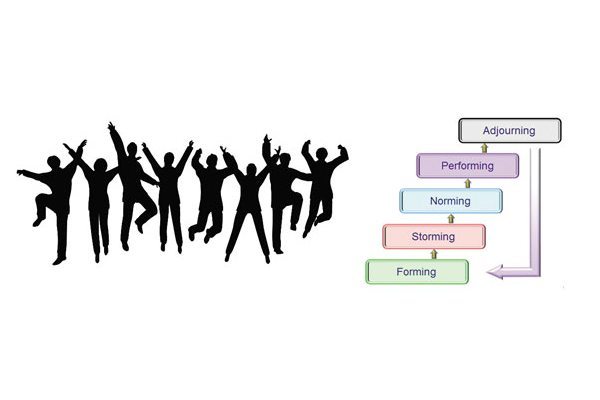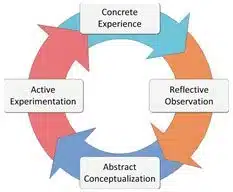Teamwork makes all the difference.
Slowly but surely, the wisdom of this statement seems to be seeping in, into corporates. This has reflected in an increasing number of companies now applying thought, effort, resources and time into attacking this challenge of building high performing teams with gusto.
Being a rather new area of focus though, there still exists a lot of myths, half truths and confusion about how exactly to go about this challenging endeavor. This article looks to address one such half truth, which is that Team entertainment is not the same as Team building.
 A popular model to understand how teams progress in their journey towards becoming “high-performance-teams”, is the Bruce Tuckman model which defines the different stages of growth of a team as being: Forming, Storming, Norming, Performing and Adjourning.
A popular model to understand how teams progress in their journey towards becoming “high-performance-teams”, is the Bruce Tuckman model which defines the different stages of growth of a team as being: Forming, Storming, Norming, Performing and Adjourning.
What this implies really is that: Becoming a high performance team is a journey. It can only happen when there is sustained intent shown by the leaders within the team to take their team through this journey. So, how does this journey happen?
Once a team is newly formed, it is important for the members to get the feeling of being part of “one” team. And this is perhaps the only place where “Team entertainment” finds a place. It is important at this stage for team members to have “shared experiences”. The laughter, excitement and going-through-it-together, makes members relate to each other as members of the same team. “Team entertainment” here, is an end in itself. For sure, it is an important part of the journey in becoming a better team – but, it is just the first step.
In the Tuckman model, this is where “Team Entertainment” stops & “Team Building” starts. It is good to share laughs and “fun moments” with team members. But if it stops there, team members who have been told they are going to a “Team building program” may end up wondering, “Hey, that was good fun. But, how does that make us a better team?”
This is where Kolb’s Experiential Learning Cycle shows the path for going deeper in this journey.
 Kolb’s Cycle talks about putting a team though a “Team Experience”, which has to be a concrete experience. This in our opinion necessarily has to fun and / or engaging. However the experience needs to be designed & thought through in a way that there can be clear learning outcomes. We sometimes think that learning and fun cannot go together. A quick look at the several testimonials we receive from happy clients should convince you otherwise.
Kolb’s Cycle talks about putting a team though a “Team Experience”, which has to be a concrete experience. This in our opinion necessarily has to fun and / or engaging. However the experience needs to be designed & thought through in a way that there can be clear learning outcomes. We sometimes think that learning and fun cannot go together. A quick look at the several testimonials we receive from happy clients should convince you otherwise.
However, once a team is put through such a “Team Experience” – it is important for the team to sit back and reflect on what happened during the experience. There is a saying that, “The way people play is very often the way they work too”. We have seen this to be true in the many workshops we conduct. Hence a very dominant team member will show the same dominant behavior during the activity too. However, unlike back at work where these become touchy issues to point out, after a fun experience – it becomes easy for members to point out the behavior of individual members seen “during” an activity. The “Storming” that Bruce Tuckman talked about often happens during such reflective observation. It takes a good Facilitator however, to ensure this storming does not degenerate in a way that is negative. A team that is able to do this honestly – is able to talk through the problems and issues it faces in an open manner.
Once such difficult discussions are taken up though, the next important question to be addressed is, “Now what?” The discussions to arrive at norms within a team, is never an easy one for sure. There would be cynicism, skepticism and emotions to manage. There would be roadblocks of all kinds including political ones from people who would not like the status quo to change. The fact that this is not an easy journey is perhaps the reason why, so few teams take it and can be called as high performing ones. But for the ones who do, the process of testing the new norms can be done through a process of active experimentation and through methodologies like Lego Serious Play.
It takes intent and vision from the leadership to help move a team from the fairyland of great team experiences through the turmoil of storming & norming – before arriving at the promised land of being a high performance team. Don’t get us wrong – “Team entertainment” is not a wrong thing to do – infact it is much encouraged by us at FocusU, but if it is “Team building” that you are after, it is important you know the difference. Good teams, like good families, don’t happen just because you went out together for a picnic. Think about it!







